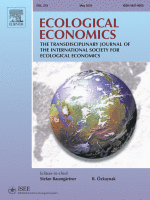
Article publication Give and take: An analysis of the distributional consequences of emission tax-and-rebate schemes with an application to greenhouse gas emissions from European agriculture par Maxime Ollier et Stéphane de Cara in Ecological Economics review.
Volume 219, May 2024, 108154
https://doi.org/10.1016/j.ecolecon.2024.108154
The potential regressivity of an emission tax is a major obstacle to the implementation of this otherwise cost-effective instrument. Rebates may help overcome this difficulty. Their distributional consequences depend on their design and the distribution of agents’ initial emissions and abatement costs. We develop a stylized analytical framework to derive general conditions under which a tax-and-rebate scheme increases income inequality and compare the performances of various rebate designs. This framework is applied to the regulation of greenhouse gas emissions from European agriculture. An emission tax with no rebate is found to substantially reduce agricultural emissions (by approximately −15% for a 100 €/tCO2eq tax), but also strongly affect the total sector income (approximately −20% with the same tax rate) as well as increase income inequality. A flat rebate considerably reduces income inequality relative to pre-policy levels. For the same impacts on aggregate income and budget, a rebate proportional to initial emissions leaves pre-existing inequality virtually unchanged. A well-designed rebate can thus be critical for the acceptability of climate policy instruments.
